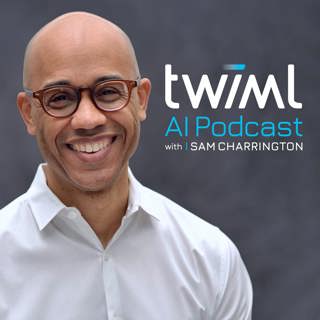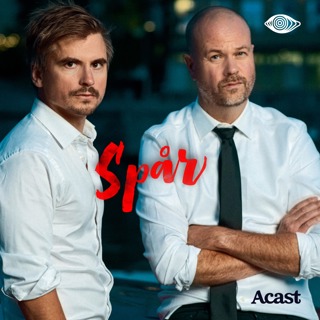
Transformers On Large-Scale Graphs with Bayan Bruss - #641
Today we’re joined by Bayan Bruss, Vice President of Applied ML Research at Capital One. In our conversation with Bayan, we covered a pair of papers his team presented at this year’s ICML conference. We begin with the paper Interpretable Subspaces in Image Representations, where Bayan gives us a dive deep into the interpretability framework, embedding dimensions, contrastive approaches, and how their model can accelerate image representation in deep learning. We also explore GOAT: A Global Transformer on Large-scale Graphs, a scalable global graph transformer. We talk through the computation challenges, homophilic and heterophilic principles, model sparsity, and how their research proposes methodologies to get around the computational barrier when scaling to large-scale graph models. The complete show notes for this episode can be found at twimlai.com/go/641.
7 Aug 202338min

The Enterprise LLM Landscape with Atul Deo - #640
Today we’re joined by Atul Deo, General Manager of Amazon Bedrock. In our conversation with Atul, we discuss the process of training large language models in the enterprise, including the pain points of creating and training machine learning models, and the power of pre-trained models. We explore different approaches to how companies can leverage large language models, dealing with the hallucination, and the transformative process of retrieval augmented generation (RAG). Finally, Atul gives us an inside look at Bedrock, a fully managed service that simplifies the deployment of generative AI-based apps at scale. The complete show notes for this episode can be found at twimlai.com/go/640.
31 Juli 202337min

BloombergGPT - an LLM for Finance with David Rosenberg - #639
Today we’re joined by David Rosenberg, head of the machine learning strategy team in the Office of the CTO at Bloomberg. In our conversation with David, we discuss the creation of BloombergGPT, a custom-built LLM focused on financial applications. We explore the model’s architecture, validation process, benchmarks, and its distinction from other language models. David also discussed the evaluation process, performance comparisons, progress, and the future directions of the model. Finally, we discuss the ethical considerations that come with building these types of models, and how they've approached dealing with these issues. The complete show notes for this episode can be found at twimlai.com/go/639
24 Juli 202336min

Are LLMs Good at Causal Reasoning? with Robert Osazuwa Ness - #638
Today we’re joined by Robert Osazuwa Ness, a senior researcher at Microsoft Research, Professor at Northeastern University, and Founder of Altdeep.ai. In our conversation with Robert, we explore whether large language models, specifically GPT-3, 3.5, and 4, are good at causal reasoning. We discuss the benchmarks used to evaluate these models and the limitations they have in answering specific causal reasoning questions, while Robert highlights the need for access to weights, training data, and architecture to correctly answer these questions. The episode discusses the challenge of generalization in causal relationships and the importance of incorporating inductive biases, explores the model's ability to generalize beyond the provided benchmarks, and the importance of considering causal factors in decision-making processes. The complete show notes for this episode can be found at twimlai.com/go/638.
17 Juli 202348min

Privacy vs Fairness in Computer Vision with Alice Xiang - #637
Today we’re joined by Alice Xiang, Lead Research Scientist at Sony AI, and Global Head of AI Ethics at Sony Group Corporation. In our conversation with Alice, we discuss the ongoing debate between privacy and fairness in computer vision, diving into the impact of data privacy laws on the AI space while highlighting concerns about unauthorized use and lack of transparency in data usage. We explore the potential harm of inaccurate AI model outputs and the need for legal protection against biased AI products, and Alice suggests various solutions to address these challenges, such as working through third parties for data collection and establishing closer relationships with communities. Finally, we talk through the history of unethical data collection practices in CV and the emergence of generative AI technologies that exacerbate the problem, the importance of operationalizing ethical data collection and practice, including appropriate consent, representation, diversity, and compensation, and the need for interdisciplinary collaboration in AI ethics and the growing interest in AI regulation, including the EU AI Act and regulatory activities in the US. The complete show notes for this episode can be found at twimlai.com/go/637.
10 Juli 202337min

Unifying Vision and Language Models with Mohit Bansal - #636
Today we're joined by Mohit Bansal, Parker Professor, and Director of the MURGe-Lab at UNC, Chapel Hill. In our conversation with Mohit, we explore the concept of unification in AI models, highlighting the advantages of shared knowledge and efficiency. He addresses the challenges of evaluation in generative AI, including biases and spurious correlations. Mohit introduces groundbreaking models such as UDOP and VL-T5, which achieved state-of-the-art results in various vision and language tasks while using fewer parameters. Finally, we discuss the importance of data efficiency, evaluating bias in models, and the future of multimodal models and explainability. The complete show notes for this episode can be found at twimlai.com/go/636.
3 Juli 202348min

Data Augmentation and Optimized Architectures for Computer Vision with Fatih Porikli - #635
Today we kick off our coverage of the 2023 CVPR conference joined by Fatih Porikli, a Senior Director of Technology at Qualcomm. In our conversation with Fatih, we covered quite a bit of ground, touching on a total of 12 papers/demos, focusing on topics like data augmentation and optimized architectures for computer vision. We explore advances in optical flow estimation networks, cross-model, and stage knowledge distillation for efficient 3D object detection, and zero-shot learning via language models for fine-grained labeling. We also discuss generative AI advancements and computer vision optimization for running large models on edge devices. Finally, we discuss objective functions, architecture design choices for neural networks, and efficiency and accuracy improvements in AI models via the techniques introduced in the papers.
26 Juni 202352min

Mojo: A Supercharged Python for AI with Chris Lattner - #634
Today we’re joined by Chris Lattner, Co-Founder and CEO of Modular. In our conversation with Chris, we discuss Mojo, a new programming language for AI developers. Mojo is unique in this space and simplifies things by making the entire stack accessible and understandable to people who are not compiler engineers. It also offers Python programmers the ability to make it high-performance and capable of running accelerators, making it more accessible to more people and researchers. We discuss the relationship between the Modular Engine and Mojo, the challenge of packaging Python, particularly when incorporating C code, and how Mojo aims to solve these problems to make the AI stack more dependable. The complete show notes for this episode can be found at twimlai.com/go/634
19 Juni 202357min





















